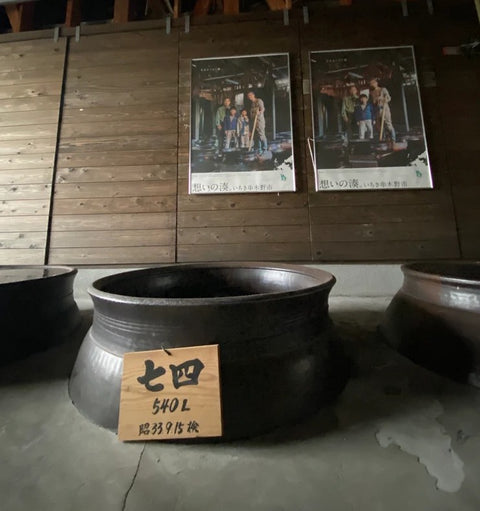Every March at Umami Mart we celebrate women – from little girls for Girl’s Day on March 3, to our fellow small business owners of Oakland, and of course, for both Sake and Shochu Gumi. It’s a month of reflection and a look into the future for women in the industry, both near and far. Especially in Japan, the stigma of working women is still prominent, with high expectations of juggling the oce and home; not to mention a preposterously unfair wage gap. Even though 50% of women in Japan were in the workforce in 2021, it remains rare to see women in upper-level management positions or with high-paying jobs. With all that said, we’re seeing more women in the sake and shochu industry. Let’s hear it for all the kura led by women in Japan!

This quarter we meet President Junko Tsutsumi of Sengetsu Shuzo in Kumamoto, and CEO Maiko Jikuya of Jikuya Brewery in Kagoshima. Both women were born into their family’s shochu-making dynasty, and both joined the companies in their 30s. Prior to this, Jikuya lived and worked in New York City for almost a decade, and Tsutsumi (above) worked in advertising. Bringing her experiences to Sengetsu, Tsutsumi worked mainly in the marketing arm of the brewery until she became president in 2016. Jikuya (below) says her time in New York, “expanded my network of contacts and led to exporting shochu.”

Tsutsumi actively travels the world to promote her brewery and Kuma Shochu, the region’s famed shochu with geographical indication. Both she and Jikuya, at the helm of breweries that are over a century old, aim to export more of their shochu for the overseas market in the upcoming years. As female representation grows throughout all industries in Japan, so do women who drink shochu. More than ever, a woman’s opinion about the taste and branding of a shochu matters. Jikuya says, “There are more women in shochu-making than before and the number of creators has increased as women's sensitivities and opinions, as well as men's, have become more accepted in responding to consumer needs.”
Kanpai,
Kayoko
+++
 Sengetsu Rice Shochu
Sengetsu Rice Shochu
Sengetsu Shuzo (Hitoyoshi, Kumamoto)
Distilled from 100% kome (rice) / ABV 25% / Koji: white /
Distillation: Vacuum / Aged in stainless steel for six months
This bottle is an ideal shochu for those who are just getting to know the
Japanese spirit, and for sake lovers in the mood for something new. A Kuma Shochu (made in Kumamoto with 100% rice and local water), Sengetsu is crisp, light, and perfect on-the-rocks alongside temaki, lemon roasted chicken, and Kenji Lopez-Alt’s radicchio and anchovy salad. In the colder months, we love it warmed up and enjoyed in small ochoko to take in the sweet notes of freshly steamed rice and pineapple. The magic of shochu is that it is distilled, so it showcases the rice here in a completely dierent way from sake (which is brewed), particularly in mouthfeel with its more lightweight body. While this bottle remains the brewery’s flagship brand, since Tsutsumi took the helm as President in 2016 she has been actively promoting the other brands in their portfolio, as well as creating new bottles like their recently launched gin!
Jikuya White Sweet Potato Shochu
Jikuya Distillery (Satsuma, Kagoshima)
Distilled from Annou imo (sweet potato) and kome (rice)
ABV 25% / Koji: White / Yeast: Kagoshima K2
Distillation: Atmospheric / Aged in ceramic for 1-3 years
Aside from running the day-to-day operations of the distillery, CEO Maiko Jikuya is also the blender. Since returning to Kagoshima to her family distillery after her time abroad, she says the most important step in shochu-making is, “To know, drink, and study various shochu. This is because it produces a taste that is not self-indulgent.” Love that! As soon as I took my first sip, I knew I had to bring in this shochu for the club: the bold, tropical notes and lush texture makes a tantalizing warm drink during these cold months. Made with an orange sweet potato called Annou, the oils of this shochu are scooped out by hand after distillation, which lends to the full mouthfeel. Try Made with Lau’s Beef Broccoli recipe to go with a glass of the shochu mizuwari on ice.



Comments (0)
There are no comments for this article. Be the first one to leave a message!